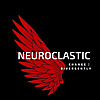
Neuro Clastic
1,404 FOLLOWERS
Content about autism by autistic and neurodivergent people. Neuro Clastic is a collective of actually autistic writers and artists advocating for autistic representation and human rights.
Neuro Clastic
1w ago
Slowing down to reflect and relate deeply with the non-human beings that are part of the living planet is an important aspect of life and healing, especially in a social context of prescribed hypernormative busyness.
Slowing down
Techno-optimism
Behaviourism
The art of living well in the cultural compost heap
References
Slowing down
Disengaging from hypernormative busyness helps us to slow down and clearly distinguish the foundations of flourishing life from anthropocentric hubris:
Understanding the living planet as a dynamic system of ecologies of care beyond human that evolves ..read more
Neuro Clastic
2w ago
Humans are not going to find solutions for the polycrisis, conquer new planets, the galaxy, and the universe, fully understand the human condition, let alone the living planet or the cosmos, or develop technologies that replace anthropocentrism with technocentrism – in fact these two terms are synonyms for one and the same human collective grandiose delusion.
The presence of the above limitations opens up human potential that far exceeds what any individual can imagine. Human potential starts to manifest once we fully appreciate:
Human cognitive and emotional limitations (*)
Human and non-hu ..read more
Neuro Clastic
3w ago
The Autistic Collaboration Trust has been active in researching cultural and psychological safety from an intersectional perspective. We now explore the level of cognitive dissonance that is generated by the societies that people are embedded in. You are invited to contribute! The results of this research will inform the education services we provide to healthcare professionals and education providers.
As part of the overarching research theme How (the lack of) diversity in the way we collectively think about the future shapes the futures that are (im)possible this project explores the s ..read more
Neuro Clastic
3w ago
There is an urgent need to catalyse intersectional ecologies of care all over the world, and to expose and oppose the internalised ableism that is holding our societies hostage. The endless chains of trauma must be broken.
Internalised ableism
Human cognitive limits
Human emotional limits
The constraints of language and framing
Disability
Dehumanisation
Rehumanisation
Beyond the human
The delusion of control
Authoritarianism
Human scale ecologies of care
The delusion of leadership
Agency at human scale
The NeurodiVerse Days of Intersectional Solidarity – July 2024
Internalised able ..read more
Neuro Clastic
2M ago
Image from https://indigenousx.com.au
The April NeurodiVerse Days of Solidarity catalysed a range of conversations, with many threads weaving through the topic of education. Several topics resulted in in-depth discussion and new emerging ongoing collaborations, which is beautiful to see. Changes towards a more egalitarian culture that deeply and fully appreciates cultural, biological, and ecological diversity are changes that improve the lives of all people, re-align humanity with our evolutionary heritage, and help us nurture sacred relationships beyond the human.
The quarterly NeurodiV ..read more
Neuro Clastic
2M ago
Money and social power gradients are abstract cultural artefacts designed to defy compostability – social conventions that we can accept or reject, which are perpetuated by careless and learning disabled societies – creating conditions that are literally hostile to all life.
The main purpose of the traumatising indoctrination system of the mono-cult is to override the above fact with the myth that social power gradients are a law of nature and the myth that money is essential for coordinating human affairs in so-called "advanced" societies.
The best way to expose these two misguided myths is ..read more
Neuro Clastic
3M ago
Initial results from a survey on psychological safety and mental wellbeing indicate that the biggest fears of Neurodivergent, LGBTQIA+, and Disabled children – and especially those who also belong to cultural minorities, relate to classmates, parents, and teachers. 97% indicate often or always having anxiety, and 80% indicate often or always feeling depressed. We are committed to gathering further data from as many geographies as possible. The data and lived experience reports will flow into our education courses for teachers, and will inform our advocacy work.
The results from our Feeling Sa ..read more
Neuro Clastic
3M ago
Autistic ways of being are part of a culture that deserves the same respect as any other culture. Over the course of months and years, de-powered dialogue and omni-directional learning amongst Autistic, Artistic and otherwise Neurodivergent people results in trustworthy relationships, and in a diverse network of evolving intersectional ecologies of care.
This is a really important message for medical professionals who have been trained to look at humans as individuals, at best within a context of an atomised family, but not as precious human beings within an ecological context.
The numbers an ..read more
Neuro Clastic
3M ago
The biggest fears of Neurodivergent, LGBTQIA+ and Disabled people relate to unmet healthcare needs, their work environment, their parents, and disrespect by healthcare professionals. Data from our participatory research shows the large overlap and the intersectionality between Autistic communities, and the LGBTQIA+ and Disabled communities.
Safety of intersectionally marginalised people
Prevelance of trauma
Neurodivergent, LGBTQIA+ and Disabled patients
What are the most important things you wish healthcare professionals to know, respect, and do, when engaging with you?
Have you had a ..read more
Neuro Clastic
3M ago
The normalisation of social power gradients and powered-up relationships is the terminal disease that plagues all empires. Since we live in the context of the convulsions of dying empires, it is important to understand the cultural dynamics that are unfolding.
Joseph Tainter’s analysis of complex societies shows that collapse of hierarchical complexity “is not a fall to some primordial chaos, but a return to the normal human condition of lower complexity”.
This article offers a curated list of valuable public learning resources for our current times, to help us acknowledge our cognitive and e ..read more